Security Forces In Bloody Friday Massacre On Trial In Iran
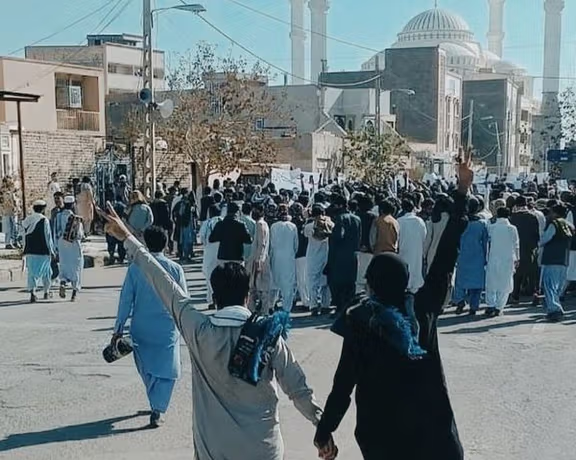
The first court session was held Wednesday for the trial of the security forces accused in the September 2022 massacre of peaceful protesters in Zahedan, Iran International can reveal.

The first court session was held Wednesday for the trial of the security forces accused in the September 2022 massacre of peaceful protesters in Zahedan, Iran International can reveal.
Being held under Judge Mohammad Marzouyeh, the defendants are police officers accused of shooting protesters, all of whom are believed to be out on bail.
On September 30, 2022, security forces opened fire at peaceful protesters in Zahedan, the provincial capital of Sistan-Baluchestan, a day known as Bloody Friday amid the nationwide uprising dubbed Women, Life, Freedom.
The incident was the bloodiest during the nationwide uprising triggered by the death in morality-police custody of Mahsa Amini in 2022, resulting in the deaths of at least 105 civilians, including 17 children.
Holding the first court session 16 months after the massacre has surprised political and civil activists. Many view the trial as a desperate attempt by the Iranian regime to gain public trust and credibility in a bid to convince people to participate in the upcoming elections.
Activists said trying the police officers does not go far enough, calling for the commanders who ordered the killings to also be tried.
Since the massacre, weekly protests have continued in the province, Sistan-Baluchestan, one of Iran's poorest, a flashpoint of unrest since the uprising began.
In September, the Oslo-based Iran Human Rights Organization urged the international community to refer the massacre to international judicial bodies for investigation as crimes against humanity.
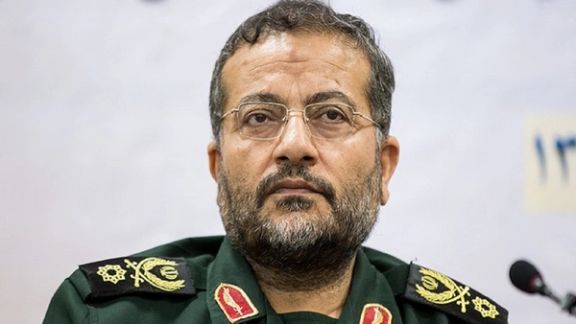
The commander of Iran’s Basij militia claims the ground has been prepared for Israel’s disappearance, as the regime's proxies around the region continue attacks on the Jewish state and its ally, the US.
"The biggest media giants are Jews; they know that the Islamic Republic of Iran has targeted the existence of the Zionist regime, and the groundwork for its eradication has been laid," Gholamreza Soleimani stated during a public gathering.
The statement comes after Iran vowed its proxy groups will rally around the Palestinian Hamas and eventually defeat Israel. However, the Iranian regime has stayed out of the Gaza war as Israel has vowed to dismantle Hamas.
Iran-backed Hamas has since been supported by Iran’s proxies in Iraq, Syria, Lebanon and Yemen who have attacked Israel from its northern border and Red Sea coast, and US facilities across the region, punishment for Biden's support for Israel's right to defend itself in the wake of the October atrocities.
Soleimani has repeatedly vocalized the regime's sentiments towards Israel as money is poured into overseas proxies in the war on Israel and the US, a justification of the misplaced budget priorities as the country suffers its worst economic crisis since the founding of the Islamic Republic.
In 2015, Supreme Leader Ali Khamenei, who founded the proxy militias as a strategy to eliminate its archenemy, said the Jewish state must be destroyed in 25 years.
The government set up a countdown clock in Tehran and other cities to mark the journey, a gesture mocked by many Iranians.
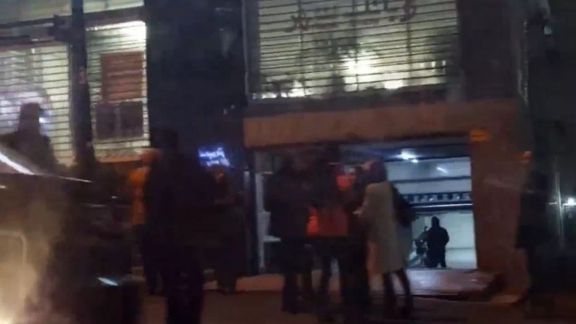
Iranian media and observers say the detention of journalists at a liberal-leaning media office might be linked to a recent revelation about Iran's international clandestine fund transfers.
On Monday evening, security forces raided the offices of Farda-ye Eghtesad, an economic website, and detained 30 journalists, including senior editors, holding them incommunicado inside the building overnight. They also confiscated all office computers and electronic devices including mobile phones and interrogated the staff. Additionally, the arrest of another economic journalist, Mehdi Afsharnik, was announced, apparently connected to the raid on Farda-ye Eghtesad.
The website, launched in August 2023, is owned by a subsidiary of Kian Capital, a private investment firm. The newspaper’s offices along with the company’s headquarters and its subsidiaries, were also raided, all located in the same building.
Journalists and observers in Tehran do not say what kind of links exist between the website and Kian capital on the one hand and the issue of circumventing sanctions on the other. It is assumed that the website at least was somehow involved in revealing the Iranian government’s illicit activities.
Kian Capital’s ties with businessman turned political activist Majid Zamani, who founded Kian Group, are noteworthy. Zamani, who now resides in Britain after leaving Iran during last year’s anti-government protests, founded a political group named Government for Iran, advocating for political dialogue and a transition from the Islamic Republic.The group has explained its principles and goals in a document entitled “Roadmap to a Dream” on the English page of its website.
The judiciary’s official news agency, Mizan, released a statement on Tuesday, asserting that the raid and journalist's arrest were not linked to journalistic activities but were under investigation by a security agency. While some detainees have been released, senior editor Ali Mirzakhani and journalist Behzad Bahmannejad have reportedly been taken to another location by security forces.
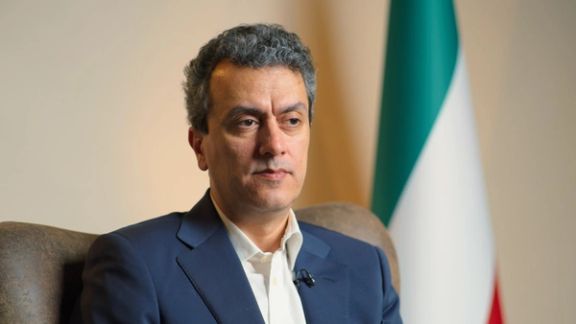
An economic expert in Tehran, speaking anonymously to Iran International, suggested that the security operations may be in response to a Financial Times report on an Iranian company evading sanctions and the Iranian Navy's seizure of an oil tanker linked to the US in January. The affiliation of Farda-ye Eghtesad with Kian Capital and its founder, Majid Zamani, is considered significant in this context, but no one offers a concrete explanation.
Zamani, an active member of the reformist Mir-Hossein Mousavi’s campaign, was arrested in 2009 for several months during the Green Movement.
Speaking to the reformist Ensaf News Wednesday, the London-based Zamani said that security forces had raided Mabna, a subsidiary of Kian Capital last week, and held all the staff for 24 hours and interrogated them.
According to Zamani, the investigation was related to a video file about sanctions that had been uploaded from one of IP addresses of Mabna on Instagram. He claimed that no evidence had been found during the raid.
Zamani also spoke about more raids on his former companies this week. “They entered the central building of the Kian Group, which is at another location and started inspecting all the [subsidiary] companies for the same reason,” he said and added that the employees had been questioned about having contacts with him.
“[The offices of] Farda-ye Eghtesad are in the same building where other Kian Group companies are. Consequently, [the newspaper office and staff] were searched and interrogated, too,” he told Ensaf News.
Zamani also said he has no knowledge of the video about sanctions that security forces have been questioning the company staff and journalists about.
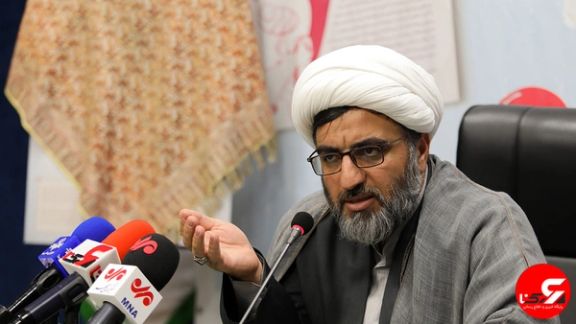
While a majority of Tehran's population is grappling with depression, an Iranian cleric complains that the Islamic regime has gone to extremes in creating joyful and happy occasions for the population.
Reza Ezzat Zamani, Deputy of the Islamic Propagation Organization, said Wednesday that "In the Islamic Republic, not only have we not prohibited many joyful matters, but we have also gone to extremes."
"We believe that many things that appear to be joyful, bring sadness and transient happiness, according to Westerners themselves" he added.
His comment comes as studies suggest a rise in depression in Iran, particularly among women and young people.
The Islamic government bans mingling of opposite sexes, drinking alcohol, enforces hijab on women and strictly monitors music, often banning concerts and other cultural events.
In September, a report from the reformist newspaper Ham-Mihan revealed that one out of every five prescriptions issued in Tehran is for antidepressants or sleep-inducing medications. Also, a comprehensive study conducted by the Tehran Studies and Planning Center in January disclosed that a significant 80.8% of Tehran residents reported a low quality of life.
The widespread prevalence of depression and the unfavorable living conditions outlined in the studies have extensive implications, contributing to an upsurge in crime, social issues, and broad public discontent. The situation has prompted a growing number of individuals to consider emigration as a potential remedy to their current circumstances.
In the wake of the Woman, Life, Freedom uprising, numerous experts, including university professors, mental health specialists, and sociologists, expressed concerns about the societal conditions in Iran. Four mental health associations also voiced their apprehensions regarding the mental well-being of citizens in a joint statement.
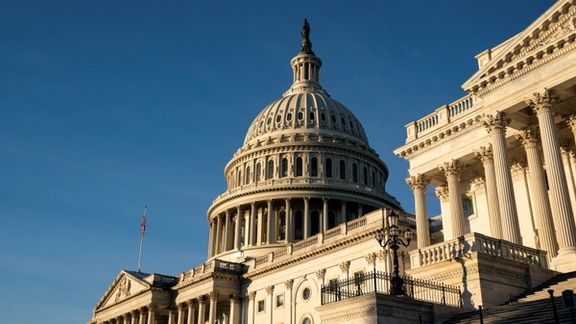
Three US lawmakers have asked the Justice Department to investigate the International Crisis Group, after a report by Iran International revealed that the ICG signed an undisclosed deal with the Iranian government in 2016.
In a letter dated February 5 addressed to Attorney General Merrick Garland, a copy of which was obtained by Iran International, US Representative Jim Banks (R-IN), Elise Stefanik (R-NY) and Mike Waltz (R-Fl) call for an investigation into the potential violation of the Foreign Agents Registration Act (FARA) by the ICG, a think tank that advises the US government.
An investigation by Iran International, published last week, showed that the Iranian government in 2016 signed a previously undisclosed agreement with the International Crisis Group, and used the organization to lobby the Obama administration on its behalf about nuclear issues.
According to a cache of documents obtained by Iran International, the Crisis Group signed a memorandum of understanding (MoU) with the Iranian Foreign Ministry’s in-house think tank, the Institute for Political and International Studies (IPIS), but never made it public. The MoU outlined a framework for “scientific and academic interactions,” aimed to “promote and intensify the friendship and the mutual understanding,” the documents showed.
“FARA requires all individuals in the United States acting as agents of foreign principals to regularly disclose their status and activities as a foreign agent to the Department of Justice,” the lawmakers noted in their letter to Mr. Garland. They emphasized that the law was meant to prevent organizations operating in the United States “from secretly serving the interests of a foreign power and to provide transparency to reduce foreign agents’ ability to credibly promote propaganda from hostile governments.”
The Crisis Group is headquartered in Belgium, but also maintains “a substantial presence in the United States,” according to the lawmakers. “While the Crisis Group ostensibly conducts research on conflict resolution, recent reporting has revealed that the group has a disturbing and longstanding official relationship with the government of Iran,” they said.
More than 50 Western research institutions - including the Crisis Group - had boycotted the Iranian foreign ministry’s IPIS for hosting a anti-Holocaust conference in 2006, but the Crisis Group was one of two organizations that reversed course and signed a formal agreement with the IPIS a decade later.
A half-dozen leaders in Western think tanks expressed surprise to Iran International and Semafor, our partner in the investigation, that the Crisis Group entered into a formal research agreement with the IPIS and said the partnerships with foreign governments, especially Iran, could raise concerns about the think tank's objectivity and potential lobbying for foreign interests.
A sanctions attorney based in Washington, who requested anonymity, said that from a legal liability perspective, there was a question of whether the Crisis Group complied with the registration requirements outlined in FARA or the Lobbying Disclosure Act if they were actively advocating for Iranian interests within the United States.
Responding to questions on this occasion, the think tank told Iran International, “Crisis Group only acts to resolve conflict, not for or on any country's behalf. Iran’s threats to our staff and accusations that we work for the US and Israeli governments have been ongoing for more than a decade and underscore our independence. We are fully compliant with U.S. law.”
However, the members of Congress concluded their letter by demanding a Justice Department investigation. “There is a clear pattern of behavior indicating that the Crisis Group is in fact not an independent organization, but a chief mouthpiece of the Islamic Republic of Iran in the United States. Given this evidence, we urge you to launch an investigation of the Crisis Group without delay for potential FARA violations to protect our nation from malign foreign influence.”
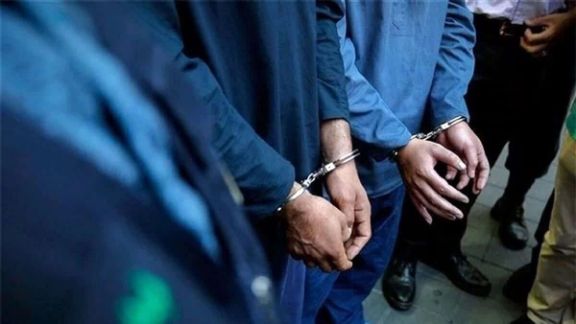
Iranian security forces have arrested several people who entered Iran from the Republic of Azerbaijan, alleging that they planned to perform sabotage operations within the country.
IRGC-linked Tasnim News Agency reported Wednesday that “Several foreign spies and terrorists, under central guidance, entered Iran from the Republic of Azerbaijan with the intention of carrying out sabotage operations within the country, but they were identified and arrested before taking action.”
Iran's intelligence agencies frequently announces busting spy networks and detaining saboteurs within Iran borders, although subsequent information about trials and convictions is scarce. Such incidents have been on the rise in recent years, with clandestine attacks targeting nuclear facilities, and military installations. Iran’s intelligence apparatus lost significant face after sabotage attacks on its Natanz nuclear facility in 2020 and 2021.
While the Iranian government often attributes such incidents to Israel, Israeli officials have never officially claimed responsibility.
In late January, the Iranian regime executed four Kurdish political prisoners on charges of plotting to bomb a defense facility. Human rights groups have criticized the executions, citing allegations of confessions obtained under torture and unfair trials.